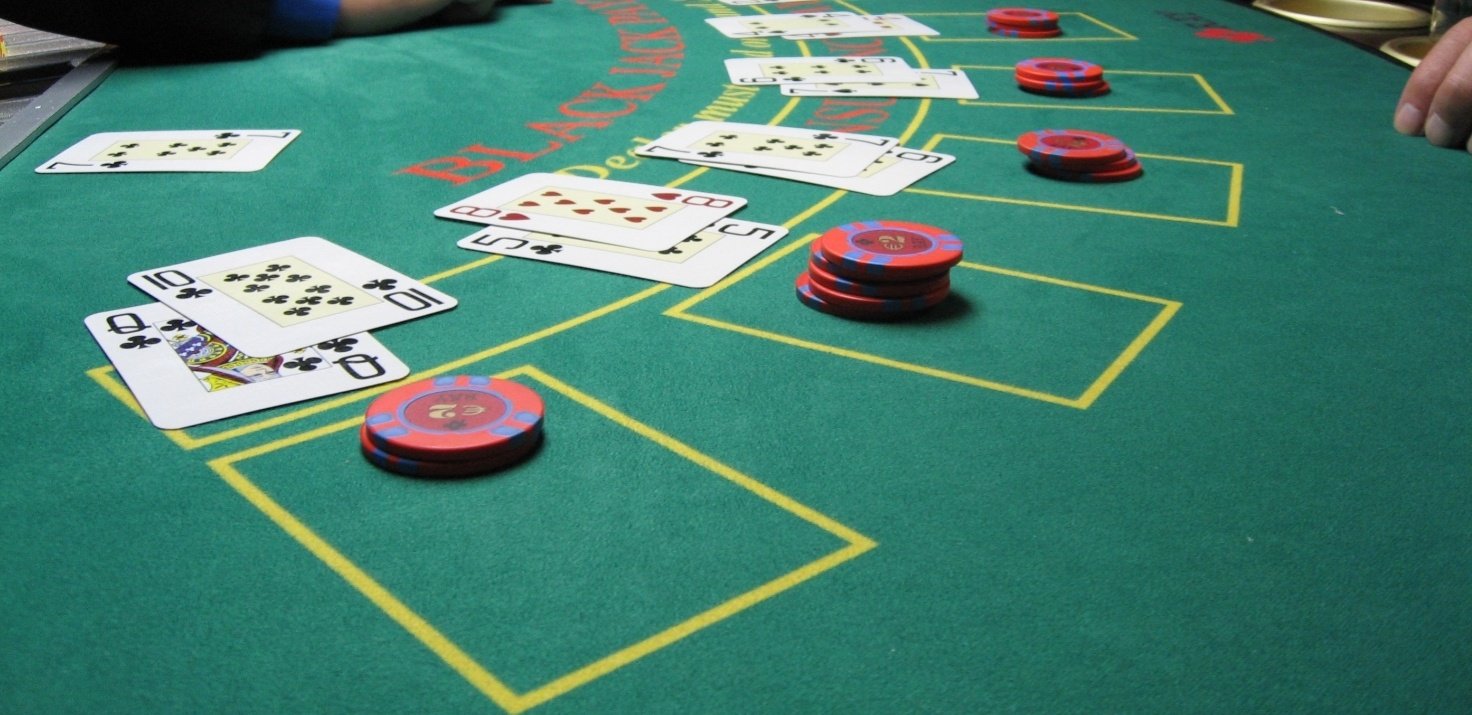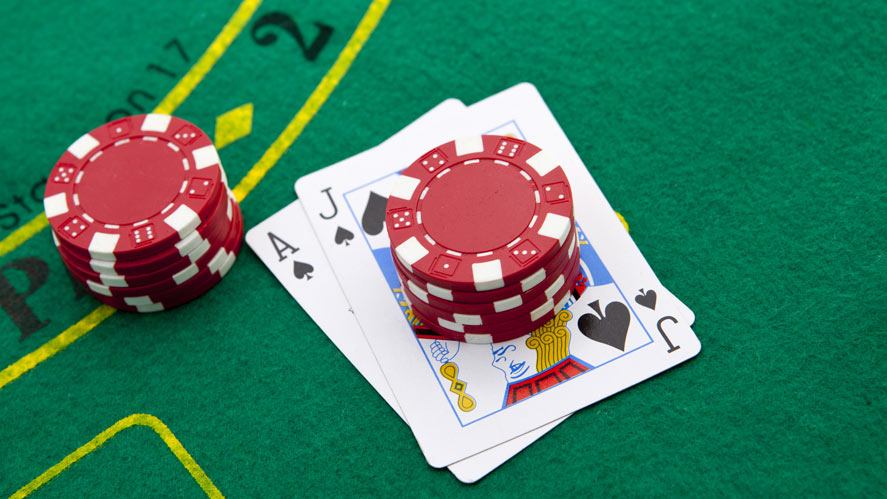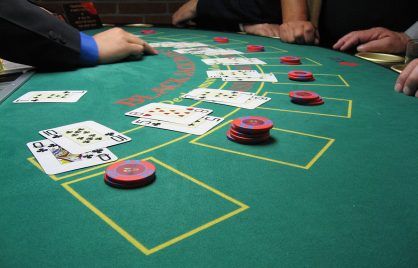R. Paul Wilson On: Advantage Play
Editor’s note: In this article, R. Paul Wilson explains two advantage play techniques: how to track shuffles and locate aces in Blackjack.
If you know more than a little about card counting and have tried to explain it to non-players, I’d bet money some of the people you’ve talked to assumed card counting is a form of cheating.
This is a common misconception that casinos like to encourage and I’ve occasionally heard it argued by industry professionals eager to impress their bosses.
Card counting is a form of “advantage play” that processes information available to all players in order to gain information used to inform future decisions at the table.

This definition can be applied to many strategies for games where the player can track variables with enough accuracy to gain a positive expectation on their bets.
If you’re entirely new to the concept or are trying to explain it to someone who is, refer to my red/black counting illustration here. This illustrates how observing cards already dealt gives valuable information about cards yet to be played.
In truth, card counting is merely about observing and adjusting but in the right hands, it can offer players an edge over the house. With this shift in expectation, some crews have made millions but for most players, poor accuracy or lack of consistency leads to greater losses rather than a reliable advantage.
Why Card Counting Isn’t Always That
Beyond counting, there are several strategies that greatly increase player expectation. I’ve sat at blackjack tables for hours maintaining a count for other players who waltz in, take over the count and (hopefully) beat the house. It’s the very definition of a “grind” and I found it to be mind-numbing.
Over time I became involved in other strategies that, in some regions, would be considered illegal.
Shuffle Tracking
Shuffle tracking is a powerful tool when the house riffles by hand, in the open and with a poorly-designed procedure. By this, I mean a shuffle that appears to mix all the cards but actually maintains predicable combinations of cards.
Let’s say we don’t merely count a deck, but we also accurately remember the count for each group of 52 cards as they are placed in the discard tray. With an eight-deck shoe, that means we may see as many as six decks before hitting the cut card and triggering a shuffle.
Now let’s imagine that the house shuffle is weak, and we can follow how those six decks (the ones in the discard tray) are distributed. Let’s further imagine that we counted three positive 52 card decks and three negative.
In other words: three of the decks we saw during play had more aces and high cards than the other three.
When a casino dealer shuffles, they follow a pre-determined sequence that mixes several decks with novel cut and riffle sequences. Unfortunately for the house, we took the time to map their shuffle at home and found that decks in the discard tray remained mostly segregated from the unseen cards. This fact alone means that when offered the cut card, we can decide whether or not to put the unseen cards into play or keep them behind that cut card!
A basic illustration of this idea would be a game where the house places the cut card halfway. Traditionally, this would be a problem for card counters but if the house shuffle is flawed and the two halves (above and below the cut card) are mixed separately, we can then decide which half to return to play on the next round.
So, if we counted a very bad sequence with lots of small values and notice their shuffle doesn’t mix the cards we counted with the cards we didn’t, then we simply place the cut card to bring the high values into play for the next round then keep them in play for future rounds; it would be a license to print money!
That’s an over-simplified example but I’ve seen shuffles that barely mix the decks together at all and been able to gain a solid advantage as a result.
Back to the table where we’ve mapped the shuffle in advance and now have an accurate count of the cards about to be shuffled. As a result of the casino’s poorly-designed procedure and our willingness to pay attention, we see that two of our high-count decks are shuffled together before being added to the pile of already-mixed cards. That makes a two-deck block of about a hundred cards rich in high values.
Given this information, where would you place the cut card when the shuffle is complete?
Slide it above that combination of high-count cards and you start a fresh shoe with a positive expectation and have a hundred cards to play before you enter uncertain territory.
Think you can win with that?
Locating Aces
Another approach is to memorise small sequences of cards that will later help predict when aces hit the table. This sounds impossible to many people but with the right house shuffle (and the right dealer), players can secure a powerful advantage with a monstrous edge over the house.

Let’s load a table with four players and assign each of them a suit: clubs, hearts, spades or diamonds. When the ace of their suit appears during the first round of play, they try to memorise the sequence of cards (suit and value) that will be placed above that ace in the discard tray.
By the end of an eight-deck shoe, each player will have up to eight sequences memorised.
The eight decks are shuffled, a cut card is inserted and the second round begins.
During the second round, these players look for the first cards in their sequence. For the sake of illustration, let’s imagine that one of our players memorised a five, four, three, two of the same suit as the aces they’re tracking.
As the cards are played, one of them sees a five of hearts and begins looking for the next card in their memorised sequence. Sure enough, after two random cards, the four of hearts appears. Another two random cards and the three appears. Another two random cards are followed by the two of hearts just as this hand is completed.
The cards are placed in the discard tray and the dealer asks for bets before dealing the next hand.
Think about what we just saw.
A four-card sequence memorised from the previous shoe just reappeared in the same order but separated by two random cards between each card in the new sequence. We know this is likely a product of the shuffle we identified. So if we’re holding a fistful of black chips, where should we put our money based on this information?
If you’re thinking “the third spot” you’re absolutely right.
Given the pattern just observed, there is a high likelihood that there will be two random cards followed by an ace.
As a first card in Blackjack, the ace offers unbeatable odds over time and if you can accurately track and bet on aces this way, you will empty the dealer’s tray.
In reality, memorised sequences are scattered and random and reappear with less uniformity after the shuffle so bets have to be spread carefully based on several factors, including the neatness of a dealer’s shuffle.
Be Careful
Cheating is where a player or dealer interferes with the natural outcome of an honest game. Advantage play is when one side or other plays within the rules but uses information available to everyone when deciding how to act.
That doesn’t mean the house has to like it.
Honest casinos will simply back you off the table and ask you not to play. Others might drag you off the table and take you for a ride. Card counters are seen as a pest or a menace and advanced advantage players who track shuffles or locate aces are often seen as going “too far”.
Shuffle machines and efficient procedures can all defend a casino against this kind of play but sometimes an effective procedure against one strategy can make the same shuffle vulnerable to another.
Of course, we should all learn how to use the information available but be careful to avoid getting spotted at the tables. Beware the over-enthusiastic security person who wants to make an impression to his colleagues by teaching you a lesson you won’t forget, regardless of what the law says.
In future articles, we’ll discuss other advantage plays, including one that took tens of millions from several casinos.
Other articles by R. Paul Wilson include marking cards for fun (and profit!) and false card deals. Come back on October 7 when he explains everything you need to know about a cold deck.


